
“What we’re doing is we’re going to deliver food to the homes of the elderly,” says Philadelphia Nursing Home Physical Therapist Alejandra Sandoval on the phone in the middle of one of her tours.
In the background you can distinguish the noise of the minivan and the choir of an electro pop song that shouts: “move for me, move for me, move for me ay ay”. The song seems to be handpicked because besides delivering food, Alejandra also gives them physical therapy and rehabilitation at home.
Nursing homes and adult day care centres in the blue zone of the Nicoya peninsula (famous worldwide for the longevity of its population) strengthened its protection measures with a series of guidelines from Ministry of Health to prevent the coronavirus from infecting its residents.
The first point within the recommendations in the Health Protocol was the suspension of long-stay home visits and activities in day centers. This has meant weeks of isolation without visits or walks for older adults living in homes, and a sudden change in routine for those who attended the centre during the day, where they saw their friends and received therapy.
The scenario for elderly people in the world is concerning. The Director of the European Region of the World Health Organization, Hans Kluge, shared his concern about the number of coronavirus deaths in nursing homes on 23 April. According to Kluge, more than half of coronavirus deaths in Europe have occurred in these places.
Just five days after the WHO statement, the Ministry of Health of Costa Rica reported in its daily updates on the pandemic that one of those infected with coronavirus was an older adult at the Carlos María Ulloa Nursing Home in San José.
After the confirmation of the case, Health system performed 359 coronavirus tests in the center: all of them were negative.
The Voice of Guanacaste spoke with the long-stay homes of elderly in Nicoya, Santa Cruz and Nandayure, and the day centres in Carrillo and Hojancha to learn more about the measures and solutions they have adopted to address the pandemic.
Home Care
Day centres have had to adapt to the crisis since they closed their doors to accommodate the elderly people. Since then, they have delivered home medicines, teaching materials and prepared food twice a day for those living alone or without family support. Some elderly people who live further away from the canton are being taken home every month with their newspapers.
“We are attending them at home so as not to expose them, because many of these older adults have to travel by public transport or collective transport,” explains the social worker at Hojancha Day Centre, Hazel Blanco.
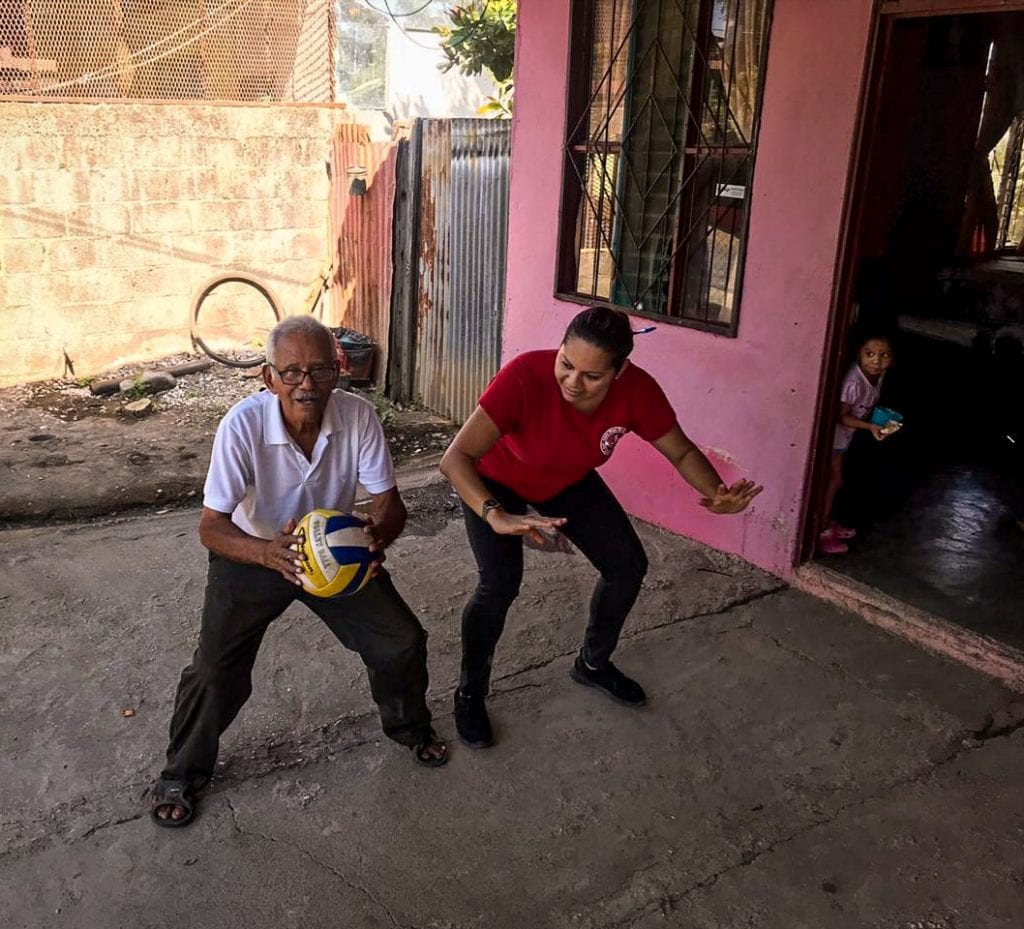
The physical therapist Alejandra Sandoval periodically visits Sergio Duarte, who attends the Centro Diurno in the canton of Carrillo, to perform physical therapy on him. Photo: Nursing Home Santiago Apóstol
For her, the family also plays a very important role in caring for the elderly. Many have restricted home visits and are the main channel of communication with adults. Centers and families have Whatsapp groups where they share jobs, reflections and exercise videos to keep them active.
“Currently the therapist goes with people who have the highest pathologies and gives them a schedule of activities,” says Priscila Gutierrez, from the Santiago Apóstol Adult Day Center in Filadelfia.
Caring for the mental health of older adults is very important for centre directors and social workers. That is why in both modalities constantly work to build routines that keep them away from cycles of depression or anxiety.
Nursing homes have also reinforced these routines. In Nandayure they developed a program of activities with music, bingo, exercises twice a week and outdoor games where they can be distracted outside the pavilions, always following the protocols of social distancing.
“We made a pork rind there in the courtyard, they put on the music and a girl dressed as a clown. We are trying to please them with a different activity, “said its director, Milady Salazar.
Closed-door nursing homes
Some prevention measures in nursing homes have been to prevent people from entering unless necessary. If they enter, they must clean or change their shoes first. If a vehicle enters, they have to spray it with a preparation of water, alcohol and soap. The Nicoya Nursing Home adapted a guardhouse as a dressing room. There the staff leaves their clothes and shoes to put on their uniforms. When it’s time to go out, they leave the uniform in a bag and send it straight to the laundry.
One consequence of these restrictions has been the temporary suspension of volunteering by some university groups, so those tasks have been burdened on nursing staff.
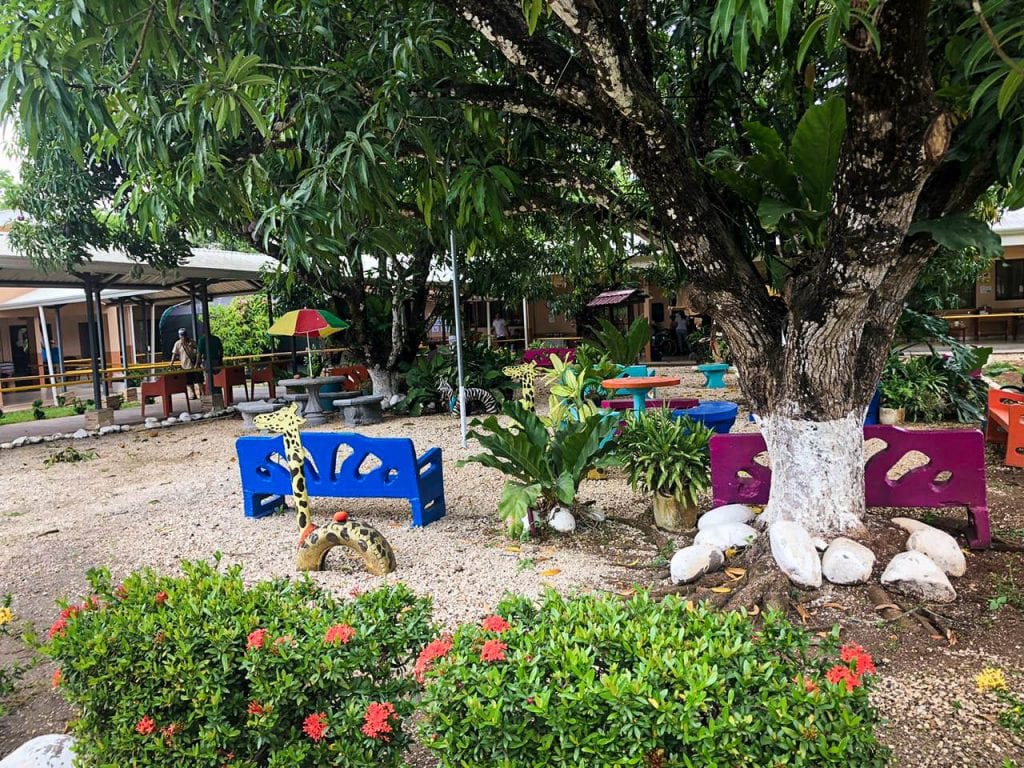
There are 40 elderly people living in the Nandayure Nursing Home. Since March 13, the center decided to suspended visits to its residents. Photo: Nandayure Nursing Home
Ana Lidia Cruz, director of the Santa Cruz home, says they had to reinforce the deep cleanliness of each department. In addition, they implemented the use of masks in the kitchen to serve food, and in the infirmary to make cures for older adults.
“We have internal protocols that are bit strict, because they are elderly people, to these we attach all the recommendations given by the Ministry,” Cruz adds. She also claims that they have been accompanied by the cantonal health department when they need to consult or when it comes to training their caregivers.
Other ways in which hygiene measures have been increased in the various centres is by constantly disinfecting chairs, handrails, switches, walkways and door latches. They have also installed more washbasins with alcohol gel and soap in the pavilions.
Each of the homes must also have an isolation room for elderly who have an illness or who have been transferred from a medical center.
“The most difficult thing for them is not being able to go out or that we don’t take them for a walk, so everything (we do it) by phone or video calls,” Ana Lidia says. It also indicates that some of the older adults consider the measures to be exaggerated and want to go outside, so those who are better cognitively allow them to watch the lectures and clarify their doubts about the coronavirus.
Another important point for the director is that elderly feel accompanied by the community. “From the donations we receive, which are not many, we make them participants because it is important that they know that the people of the town have them in mind,” she adds.
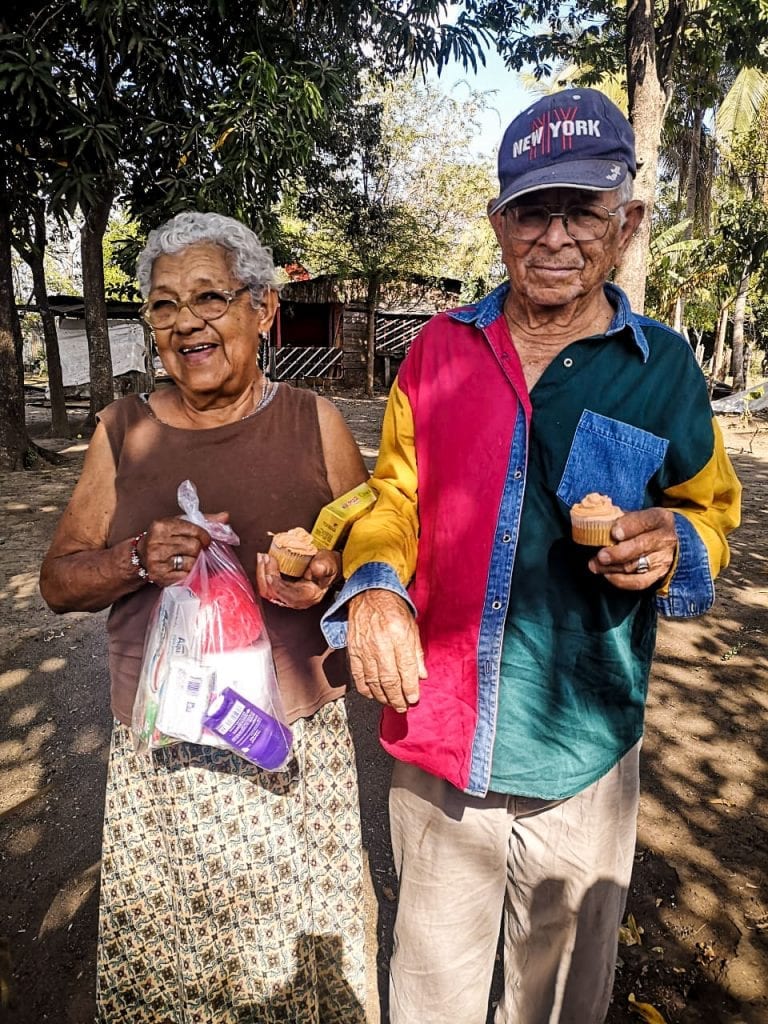
The Santiago Apóstol de Carrillo Senior Adult Day Centre delivers chlorine, liquid soap and alcohol once a month. Photo: Nursing Home Santiago Apóstol
If you want to collaborate with any of the nursing homes and day centers you can contact them to the following telephone numbers:
Hojancha Nursing Home Association. Tel: 2659-8132
Santiago Apóstol de Carrillo Day Center. Tel: 2688-7576
Nursing home Our Lady of the Rosary of Santa Cruz. Tel: 2680-0591
San Blas de Nicoya Nursing Home. Tel: 2685-5809
Nandayure Sacred Heart of Jesus Nursing Home. Tel: 2657 7138



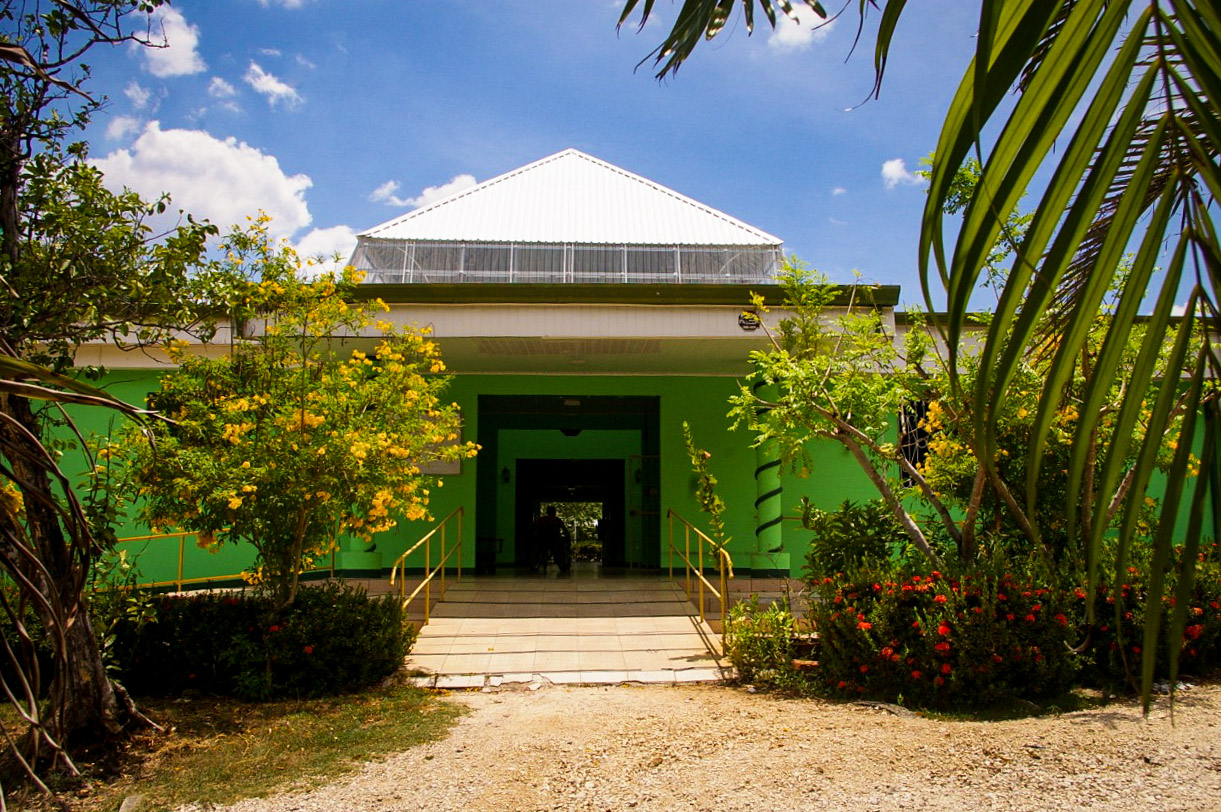

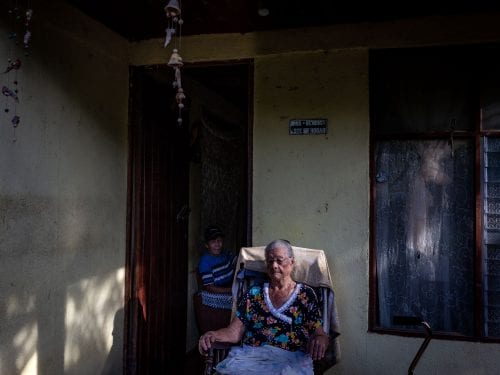
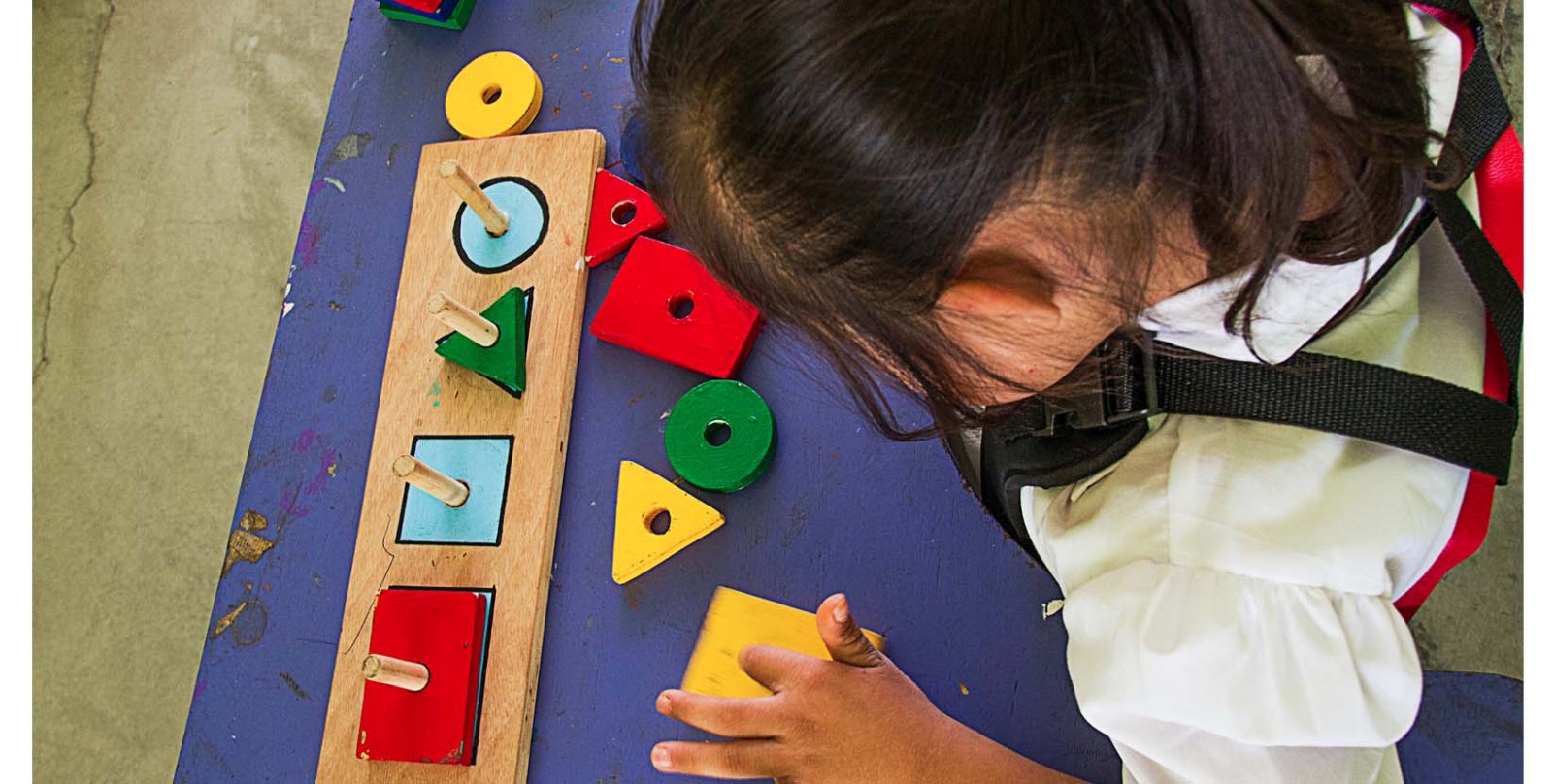
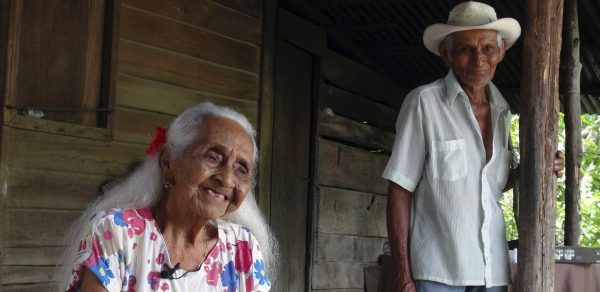

Comments